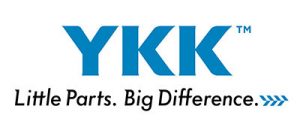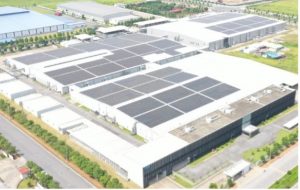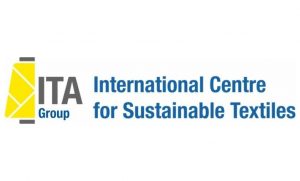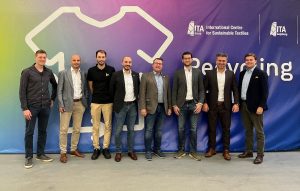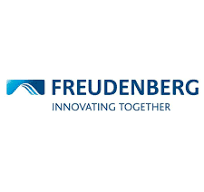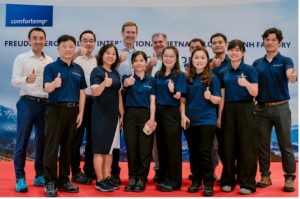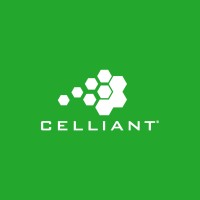 NORWALK, Conn.— July 22, 2024 — Functional Fabric Fair, powered by PERFORMANCE DAYS®, successfully closed its summer edition in New York City shattering previous attendance records with an increased attendance of 18 percent — from attending companies like Calvin Klein, HOKA, L.L. Bean, NOBULL, Peter Millar, Under Armour, Vineyard Vines and many others. Apparel CEOs, designers, sourcing and material managers, product development executives from large brands, retailers and independent companies reported how this has become the pinnacle event for performance and sustainable sourcing based on the highly vetted 140-plus sustainable-certified suppliers, showcasing the newest high-performance functional fabrics, finishes, trims and accessories for the 2025/2026 seasons.
NORWALK, Conn.— July 22, 2024 — Functional Fabric Fair, powered by PERFORMANCE DAYS®, successfully closed its summer edition in New York City shattering previous attendance records with an increased attendance of 18 percent — from attending companies like Calvin Klein, HOKA, L.L. Bean, NOBULL, Peter Millar, Under Armour, Vineyard Vines and many others. Apparel CEOs, designers, sourcing and material managers, product development executives from large brands, retailers and independent companies reported how this has become the pinnacle event for performance and sustainable sourcing based on the highly vetted 140-plus sustainable-certified suppliers, showcasing the newest high-performance functional fabrics, finishes, trims and accessories for the 2025/2026 seasons.
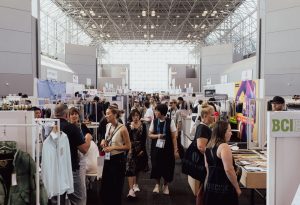 As a highly coveted event for the apparel industry, the packed and energetic show floor featured cutting-edge innovations, hands-on demonstrations, interactive exhibits that showcased the latest advancements in sustainable textiles as well as education, networking, and business sourcing opportunities unlike any other textile trade event.
As a highly coveted event for the apparel industry, the packed and energetic show floor featured cutting-edge innovations, hands-on demonstrations, interactive exhibits that showcased the latest advancements in sustainable textiles as well as education, networking, and business sourcing opportunities unlike any other textile trade event.
“As a functional, innovation-driven show, we offer an exciting, productive experience with a curated lineup of the top vendors, an easy-to-navigate floor plan, vetted sourcing opportunities through Trend Forum displays, engaging activations, expert-led discussions, and networking opportunities designed to inspire and inform,” states Steve McCullough, event director of Functional Fabric Fair. “We were thrilled to welcome so many returning high-caliber sourcing buyers and professionals as well as first-time attendees in the performance industry. The packed booths and bustling aisles and positive reports from our vendors made the event a remarkable success.”
Exhibitor Alejandra Diaz of Hemp Fortex, added, “Functional Fabric Fair is beneficial because it’s where we can meet with our existing customers and new customers. If I had to describe Functional Fabric Fair in three words it would be intense, exciting and innovative!”
In addition to the show floor sourcing, Functional Fabric Fair’s summer edition featured the following notable activations:
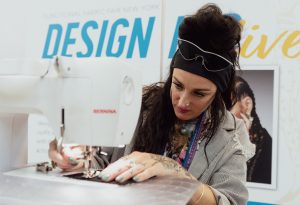 Design Lab (LIVE)
Design Lab (LIVE)
New to the show, the Design Lab (LIVE) was a real-life design and construction demonstration featuring Kelly Dempsey, a sustainable fashion designer celebrated for her innovative approach a to upcycling secondhand materials and past contestant on “Project Runway”.
During day one of the show, the Design Lab (LIVE) was an area where Kelly constructed a stylish performance kimono style jacket in real time using materials from exhibitors with attendees watching and engaging with her as the creative process unfolded. The functional fabrics and accessory products were donated by Cocona 37.5, FLYTEC, Lenzing Fibers and Prym Fashion. The final garment was on display for a silent auction that took place during the drirelease sponsored Happy Hour on Tuesday, July 16 between 5-6 pm. Proceeds from the auction were donated to the charity FABSCRAP.
 Trend Forum
Trend Forum
An attendee favorite attraction, the Trend Forum, featured displays highlighting 12 key categories including: Baselayer, Midlayer, 2 Layer, 2.5 & 3 Layer, Lightweight & Downproof, Softshell & Outer Midlayer, Shirts, Pants & Tights, Focus Topic, Accessories & Trims, and Function Meets Fashion and New York Exclusive – which specifically focused on a New York fashion-focused audience. Attendees could source an exclusive selection of 100-percent sustainable fabrics from carefully curated samples by a panel of experts from esteemed universities, leading apparel brands, procurement teams, and fabric technologists representing diverse facets of the industry. Once attendees scanned the QR codes on the swatches they could arrange to have a free sample sent to their business.
“This is the leading trade show for all sustainable functional fabrics, everything you see here is the most advanced technology in the fabric, textile, material and manufacturing world – here is where you see the future,” said attendee Isabelle Levine of Forest and Thread.
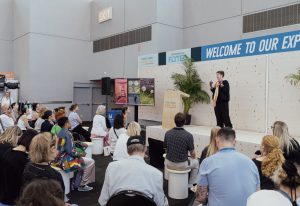 Expert Talks
Expert Talks
The informative Expert Talks Program featured more than 10 sessions led by industry experts and thought leaders, addressing seasonal trends in colors and materials, technical aspects of performance wear fabrics, sustainability and business development. Sessions also explored ethical sourcing, environmental impact, regulations and future industry forecasts, providing valuable knowledge and actionable insights for professionals aiming to stay ahead in the apparel and functional fabric industries.
Posted: July 22, 2024
Source: RX (Reed Exhibitions)


